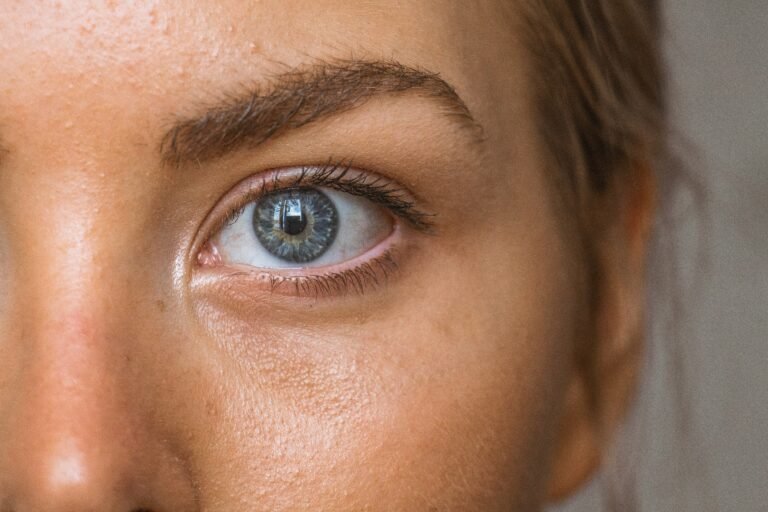Photo by Amanda Dalbjörn on Unsplash
In the ever-evolving world of skincare, medical grade skincare has become a buzzword, promising effective results and science-backed formulations. But what sets it apart from over-the-counter products? Is it worth the investment, and how does it transform your skin health?
In this comprehensive guide, we’ll dive deep into what medical-grade skincare is, its benefits, who should use it, and how to incorporate it into your routine for maximum results.
What Is Medical-Grade Skincare?
Medical-grade skincare products are formulated with higher concentrations of active ingredients and are designed to penetrate deeper layers of the skin. These products are often prescribed or recommended by dermatologists or licensed skincare professionals and are typically backed by clinical studies to prove their efficacy.
Unlike over-the-counter (OTC) products, which are mainly focused on the skin’s surface, medical-grade skincare targets specific skin conditions such as acne, hyperpigmentation, rosacea, and signs of aging. The higher concentration of active ingredients like retinoids, antioxidants, and peptides ensures faster, more noticeable results.
Key Characteristics of Medical-Grade Skincare:
- Higher potency: Contains a higher percentage of active ingredients.
- Deeper penetration: Designed to work on the skin’s deeper layers.
- Clinical backing: Often supported by clinical trials.
- Personalized care: Usually recommended by dermatologists.
Benefits of Medical-Grade Skincare
1. Effective Results
One of the most significant advantages of medical-grade skincare is its effectiveness. Because these products are formulated with potent ingredients in higher concentrations, they can deliver more noticeable and faster results than OTC products.
2. Treats Specific Skin Concerns
Whether you’re dealing with acne scars, uneven skin tone, fine lines, or hyperpigmentation, medical-grade skincare is tailored to treat specific skin concerns. This level of customization helps target the root cause of skin issues rather than merely masking symptoms.
3. Science-Backed Formulations
Medical-grade skincare brands invest in research and clinical trials to ensure their products work as claimed. This means that these products are more likely to provide the intended benefits and are less likely to cause irritation or adverse reactions.
4. Professional Guidance
Since medical-grade skincare is often recommended by dermatologists or licensed skincare professionals, you receive expert advice tailored to your unique skin needs. This reduces the guesswork involved in selecting the right products and ensures you’re using the best ingredients for your skin type and concerns.
5. Long-Term Skin Health
Using medical-grade products can lead to long-term improvements in skin health. These products are not just about immediate results; they focus on repairing the skin and preventing future damage.
Who Should Use Medical-Grade Skincare?
Medical-grade skincare is ideal for individuals with specific skin concerns that have not responded well to OTC products. It is particularly beneficial for people dealing with:
- Acne and acne scars
- Hyperpigmentation
- Rosacea
- Fine lines and wrinkles
- Sun damage
- Uneven skin texture
That said, medical-grade skincare isn’t only for those with visible skin concerns. It can also be used preventatively to maintain youthful skin and prevent future issues such as premature aging or sunspots.
When to See a Dermatologist:
If you’re unsure whether medical-grade skincare is right for you, consult a dermatologist. They can evaluate your skin and recommend a personalized regimen based on your skin type, concerns, and goals.
How to Incorporate Medical-Grade Skincare Into Your Routine
1. Consult a Professional
Before jumping into the world of medical-grade skincare, it’s essential to consult a dermatologist or licensed skincare professional. They can guide you on which products will work best for your skin type and concerns.
2. Start Slowly
Medical-grade products are potent, so it’s crucial to introduce them gradually into your routine to avoid irritation. Start by incorporating one product at a time and monitor how your skin reacts.
3. Focus on Essentials
You don’t need a dozen products to see results. Focus on the basics:
- Cleanser: Opt for a medical-grade cleanser that targets your skin type, whether it’s oily, dry, or sensitive.
- Serum: A serum with ingredients like vitamin C, hyaluronic acid, or retinoids can offer powerful anti-aging and brightening benefits.
- Moisturizer: Choose a medical-grade moisturizer that hydrates deeply without clogging pores.
- Sunscreen: Sunscreen is a must in any skincare routine, but medical-grade sunscreens provide more advanced UV protection.
4. Be Consistent
Consistency is key when it comes to skincare. Stick to your routine and give it time to work. While some results can be seen in a few weeks, full results often take several months.
5. Track Your Progress
Keep a skincare journal or take photos to monitor your progress. This will help you and your dermatologist determine whether adjustments are needed.
Medical-Grade Skincare vs. Over-the-Counter Products
You might be wondering, “Is medical-grade skincare worth the investment?” Here’s a comparison to help you decide.
| Feature | Medical-Grade Skincare | Over-the-Counter Products |
|---|---|---|
| Active Ingredient Strength | High | Low to moderate |
| Penetration Depth | Deeper layers of skin | Surface level |
| Customizability | High | Low |
| Efficacy | Faster, more noticeable results | Gradual or moderate results |
| Professional Oversight | Yes (recommended by dermatologists) | No |
If you’re looking for faster, more effective results and don’t mind paying a premium, medical-grade skincare is an excellent choice. OTC products are often less expensive but may take longer to show visible results, and some may not address specific skin concerns as effectively.
Popular Medical-Grade Skincare Brands
Here are some renowned medical-grade skincare brands known for their research-backed formulations and effectiveness:
- SkinCeuticals: Known for its potent antioxidants and anti-aging products.
- ZO Skin Health: Offers a range of products that focus on restoring skin health and preventing future damage.
- Obagi: A top choice for treating hyperpigmentation and improving skin texture.
- Epionce: Known for its gentle yet effective products, ideal for sensitive skin.
- PCA Skin: Offers targeted treatments for acne, rosacea, and signs of aging.
Conclusion: Is Medical-Grade Skincare Right for You?
Medical-grade skincare offers a more effective, science-backed approach to skincare that goes beyond the surface. While it comes at a higher price point, the results can be transformative for individuals with specific skin concerns or those looking to maintain long-term skin health.

Daniel J. Morgan is the founder of Invidiata Magazine, a premier publication showcasing luxury living, arts, and culture. With a passion for excellence, Daniel has established the magazine as a beacon of sophistication and refinement, captivating discerning audiences worldwide.





